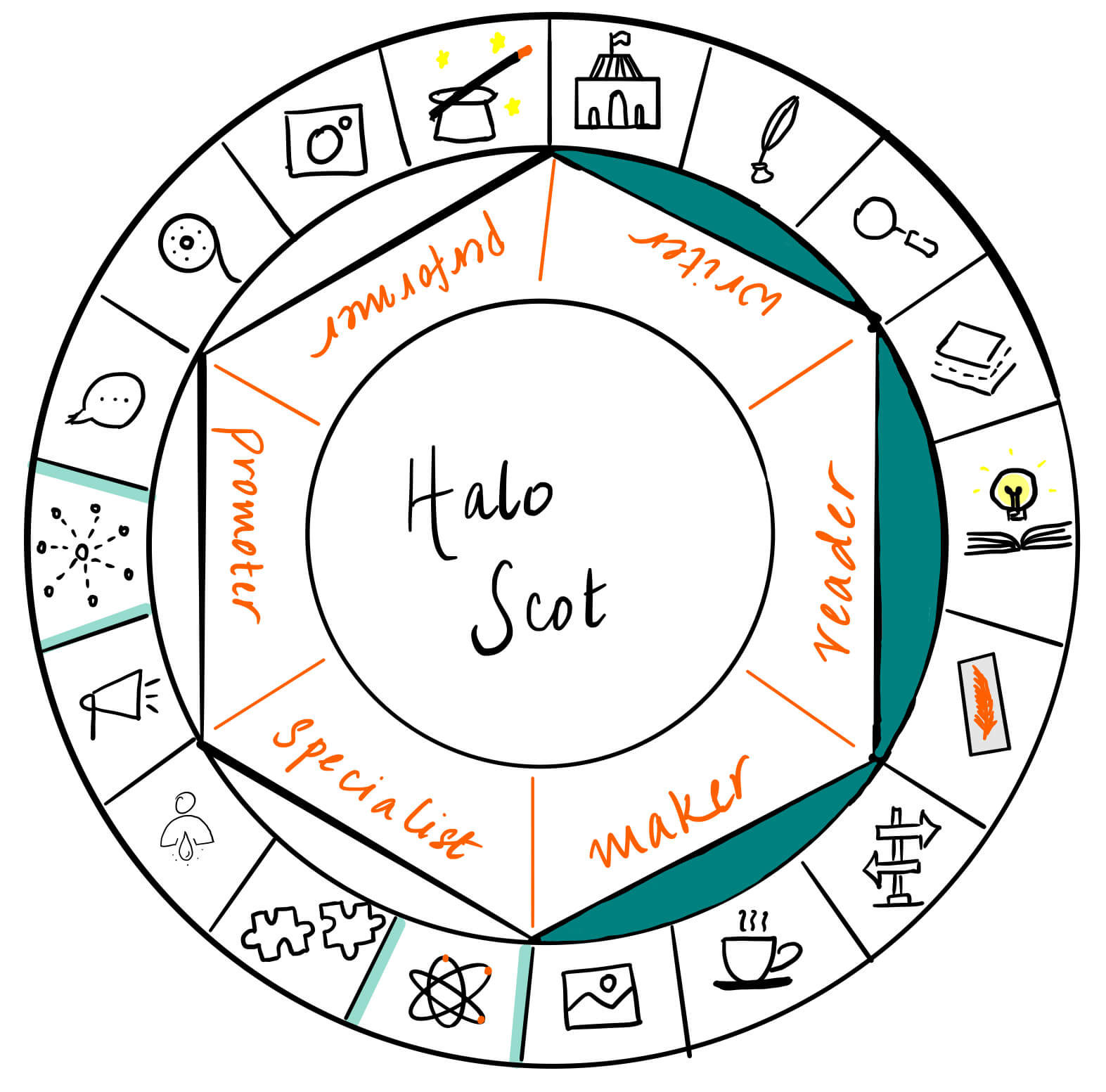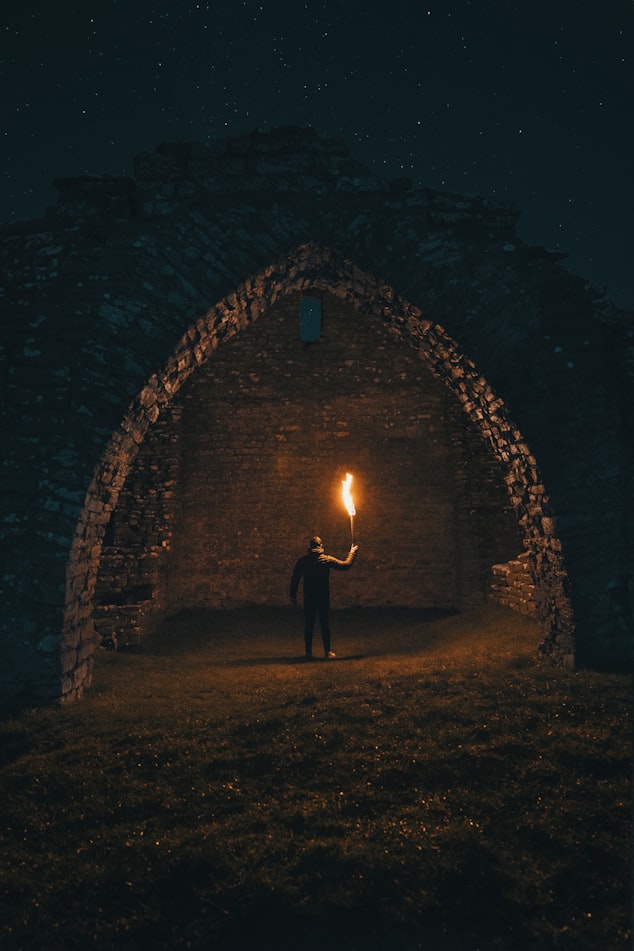
Today is Day 2 of our #ArmedWithABingo giveaway author features and I have Halo Scot with me today on Creator’s Roulette. Halo’s book one of the Rift Cycle series is in the giveaway and today we will be chatting about their inspiration for writing.
If you like a science fantasy with grimdark, psychological horror, mental illness, and LGBTQ themes, this book is for you. The series seeks to normalize all aspects of the human experience while aiming to break stigmas surrounding mental illness, substance abuse, grief, and sexual orientation. You can check out the book on Goodreads.
But first, learn more about Halo and their passions below!
Welcome to Creator’s Roulette, Halo! What got you into writing?
I am a Renaissance soul. I bushwhack my way through life — no highways for me. I have been a student, a teacher, a musician, a photographer, a coder, and now, an author. It took me awhile to find my direction, but each experience enabled me and pushed me closer to the truth.
I write about the dark, about the taboo and the unorthodox. A few years back, when the urge to write became too desperate to ignore, I found the pen a lifeline and the words a lighthouse.
Writing is therapy for me, a pressure relief valve for emotions, for the inevitable existential crisis that comes with personal growth. Writing orders my thoughts as I explore my darkest fears, my deepest desires, through fantasy. Writing unveils the truth. For me, it uncovered the truths of my mental illnesses and of my sexuality. The stories are an outlet, a voice, for our subconscious. We admit to the page what we are not ready to admit to ourselves, and then the page becomes a mirror.
I absolutely agree with that. I use writing in a therapeutic manner often and have read tons of research on how I can help improve health and deal with emotional pain (Opening Up by Writing It Down, Third Edition: How Expressive Writing Improves Health and Eases Emotional Pain by James W. Pennebaker had many interesting studies). When did you realize this power of writing?
It’s wonderful that you use writing in the same way as well! Throughout my life, I used writing as a crutch whenever I needed an escape. However, a few years ago, I lost a couple people to tragedy and went through an identity crisis. During this difficult time, I found writing not only helpful, but necessary. I tried using music, as I used to, and a range of other hobbies, but writing was the only thing that released me and ordered my mind. It healed me, so to speak, and helped me understand and move forward.
When did writing evolve for you from writing about your life to writing about characters?
Unexpectedly, I actually started writing about characters first and then realized how accurately they portrayed my life, who I was, what I was going through. I unintentionally used fantasy to entertain ideas I was too afraid to think about as fact. And then, reading back what I had written, I saw what I was trying to tell myself.

How do you pursue your passions through your book, Edge of the Breach?
I used Edge of the Breach to try and normalize invisible illnesses (i.e., mental illnesses, substance abuse, and grief), and to break stigmas surrounding sexual orientation. As someone who identifies as gay and struggles with depression, OCD, and body dysmorphic disorder (amongst others), it was very important for me to give a voice to these communities. I so often felt alone and outcast through adolescence and adulthood — when I finally discovered my identity, it was like a dam bursting in my psyche, and I finally saw where I truly fit in. It is my hope that, through my openness and honesty, I can help others feel the same sense of belonging and inclusion.
And here’s my shameless spiel:
We all become monsters at the edge of the breach. In a post-apocalyptic world where season of birth determines power — spring healers, summer mages, fall shapeshifters, and winter shields — interrealm war beckons two lost and fated souls. Julian Kyder is the son of an abusive rape victim who compensates for his abandonment through psychopathy. Sira Rune is a cancer survivor who dedicates her life to living free and fearless while experiencing the taboo and the unorthodox. While he struggles to control his demons and she struggles to find purpose, the gods drag the ruined world into war.
That sounds fascinating, Halo, something I would be quite interested to read (I have your book already! 🙂 ) Why did you choose fantasy as the genre for this series?
Wow! Thank you so much for your interest and support! I chose fantasy, because I love its satirical elements, the way you can say so much about reality while hiding behind superpowers and prophecies. As a culture, I think we are more receptive to metaphors instead of accusations. Highlighting the normalcy of mental illness and sexual orientation within a make-believe society instead of indicting our own seemed a better approach to say what I needed to say and go where I needed to go with the book.
What kind of research did you have to do for your book?
There was a prolific (and somewhat frenetic) level of googling. I also have firsthand experience with many of Kyder’s mental illnesses, either from my own demons or from friends’, and I have struggled with grief, as Rune does.
That’s all of my questions for you. Thank you for joining us today for Creator’s Roulette.
Thanks again so much for having me!
Do you use writing in a therapeutic manner? Tell us in the comments!
You can connect with Halo Twitter and Instagram, or visit their website.

Cover Photo by Marko Blažević on Unsplash
Image from a cave adventure on Unsplash.

This story sounds awesome! I love stigma-breaking and stereotype-breaking stories, and a few of the goodreads reviews mention some fourth-wall breaking as well 😃 Not sure if I can do grimdark or horror right now, but I’ll keep this in mind! Maybe even for the dystopia square on my bingo board.
As for writing therapy… I used to journal like it was my job 😄 From about third grade through sophomore year of high school, I was a total “Dear Diary” kind of girl. I wrote down ALL my emotional adventures.
But after sophomore year, when I started developing (or when I was first diagnosed with) clinical depression and anxiety, it started feeling extremely uncomfortable to see my pain on paper. It didn’t feel like catharsis, for some reason. I haven’t journaled since then, but I’m starting to explore some of my experiences in my fiction. Maybe it’s a loophole or back door for me — an indirect way to journal. A way to “solve” my problems by letting my characters solve them.
Thank you so, SO much for your kind words and interest!
I’m sorry to hear that you haven’t been able to journal — the same thing happened to me, but once I started writing fantasy and indirectly journaled, as you so beautifully put it, writing was once more therapeutic.
Hope you feel better soon! All the best! 🖤❤️
You’re welcome, and thank you! For future reference, where would you recommend finding a copy of Edge of the Breach? I have both a Kindle and a Nook, but I also still read tree-books, as I call them 😄
Hi Neri, I got my copy off Amazon for Kindle. 🙂
Hi Neri! It’s only $0.99 on Amazon 😊
https://www.amazon.com/dp/B082MR74M1
What a fantastic feature!
I added this book to my tbr a few weeks ago, during my twitter quest looking for indie writers to support, and my interest only grew with this post.
It’s intensely interesting to me how writing and stories can be akin to therapy to so many different people, even though we all develop distinct coping mechanisms to deal with our pain, many times we end up finding similar eaysy to share it.
I definitely related to Halo on writing as an outlet. In particular intense episodes, when I can’t bring myself to write, I always manage to find comfort in reading. This is how impactful the healing power of stories can be.
Sending you all the love, and thank you SO much for your interest! Yes, stories in every form have always helped me heal ❤️